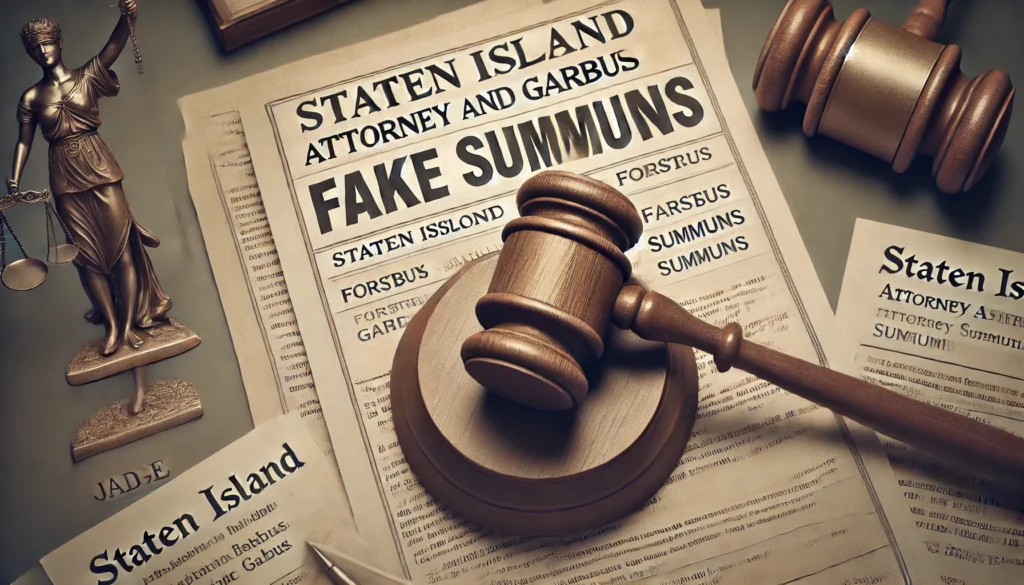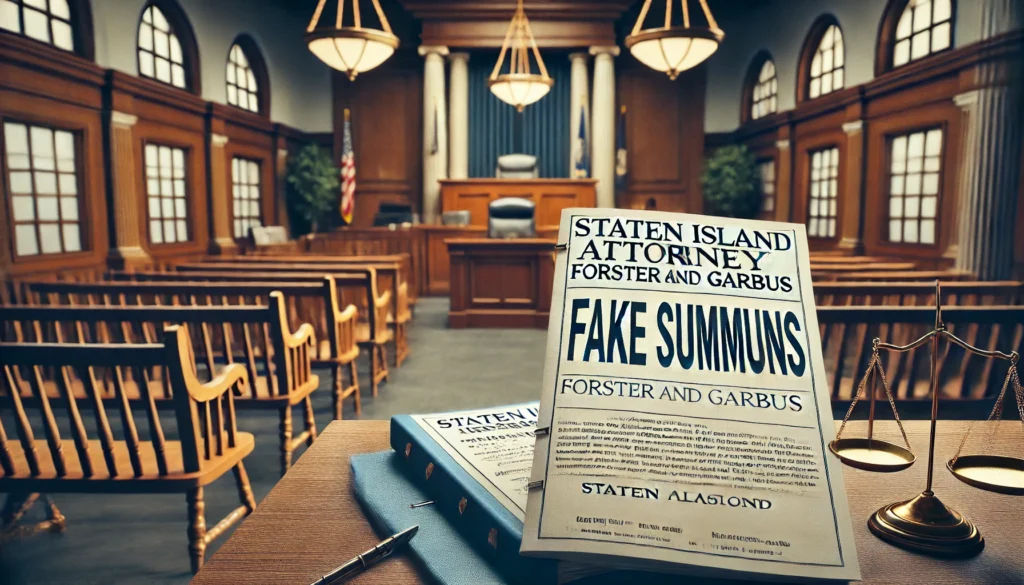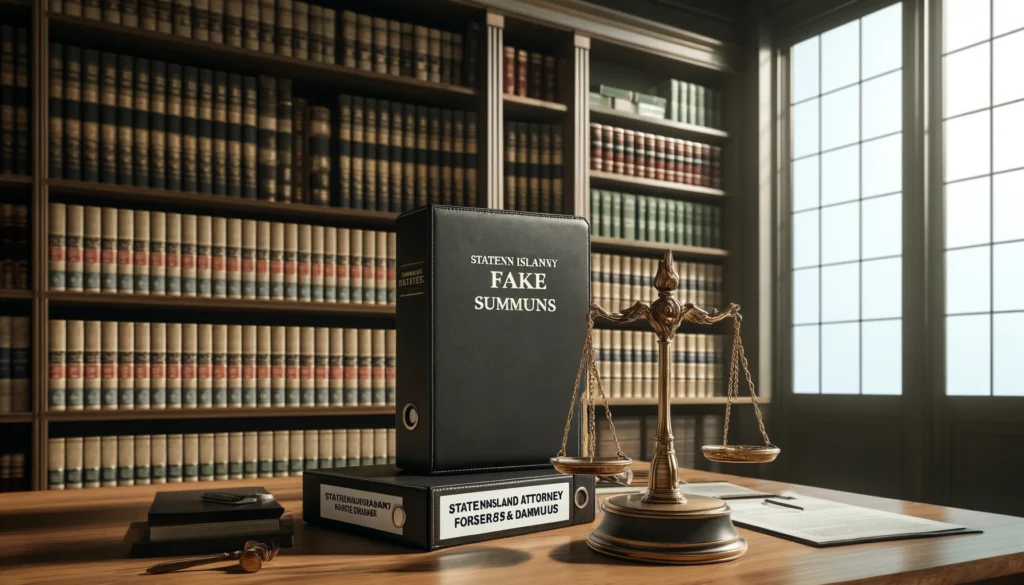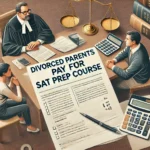Staten Island Attorney Forster and Garbus Fake Summons: A Consumer’s Guide
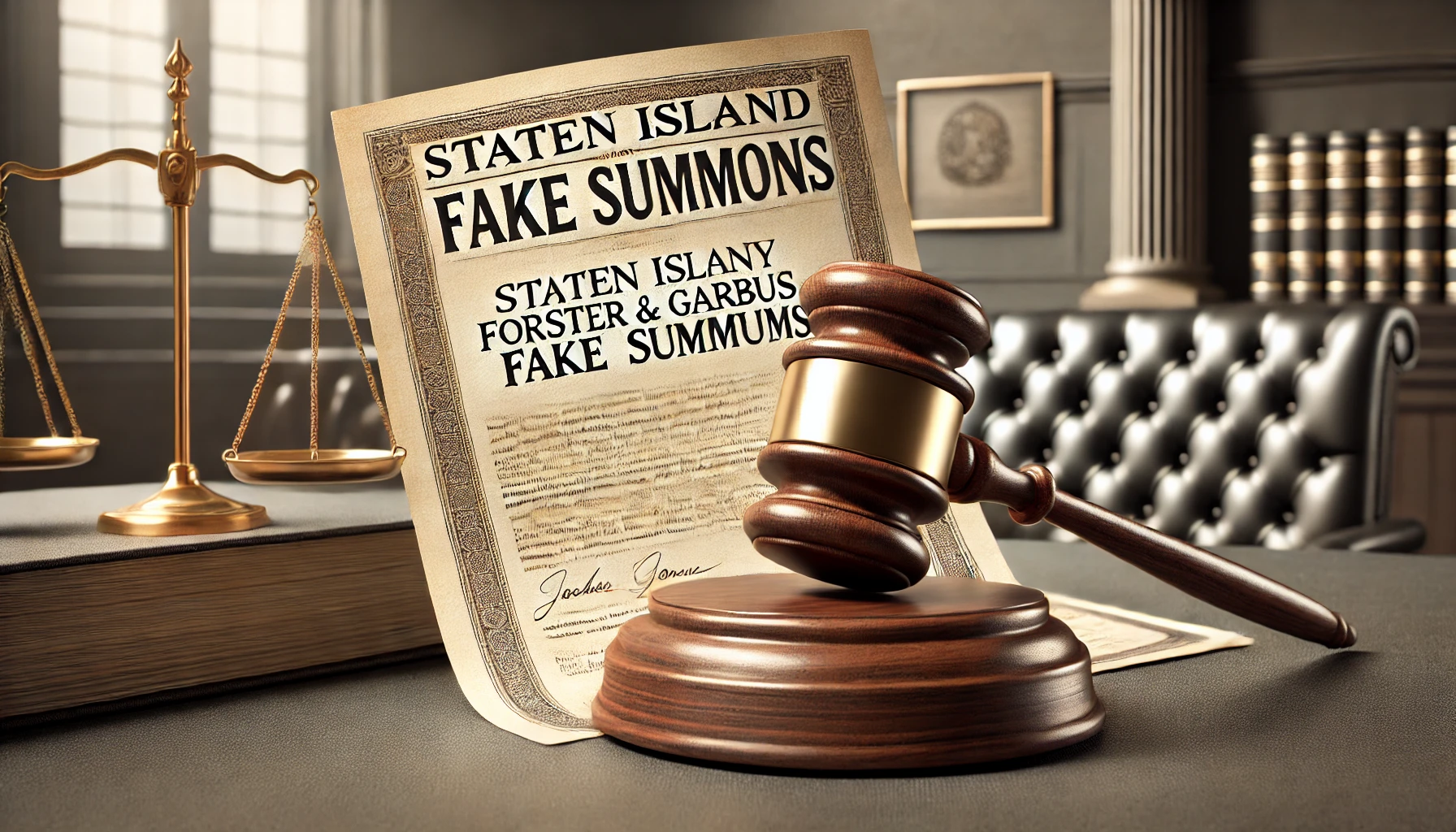
Forster & Garbus, a Staten Island-based debt-collection law firm, has been at the center of controversy for issuing what many refer to as “fake summonses.” These legal documents, allegedly flawed and improperly prepared, have raised concerns about fairness in debt collection. The Staten Island attorney Forster and Garbus fake summons controversy underscores the importance of understanding consumer rights and the legal obligations of debt collectors.
This article breaks down the controversy surrounding Forster & Garbus, the legal case against them, and what consumers can learn to protect themselves.
Who Are Forster & Garbus?
Forster & Garbus is a law firm specializing in representing creditors in debt-collection lawsuits. Their work involves filing legal cases to recover unpaid debts on behalf of banks, credit card companies, and other lenders.
While this type of legal practice is common, the firm has faced allegations that it improperly handled cases, particularly by filing lawsuits without sufficient evidence or proper legal preparation.
What Are Fake Summonses?
Fake summonses are legal documents that appear to have legal authority but lack the necessary evidence or preparation to justify their claims. In the case of Forster & Garbus, these summonses were used to pressure consumers into paying alleged debts without proper verification.
1. Key Characteristics of Fake Summonses:
- Lack of adequate documentation proving the debt.
- Misleading language that suggests immediate legal consequences.
- Minimal or no attorney review before filing the case.
These practices can lead to consumers paying debts they don’t owe or failing to challenge a lawsuit due to fear or confusion.
The Legal Case Against Forster & Garbus
In 2019, the Consumer Financial Protection Bureau (CFPB) filed a lawsuit against Forster & Garbus, accusing the firm of engaging in deceptive and unlawful practices.
1. Key Allegations:
- Filing lawsuits without sufficient evidence of debt.
- Misrepresenting the involvement of attorneys in reviewing and preparing cases.
- Violating the Fair Debt Collection Practices Act (FDCPA), which prohibits deceptive and abusive practices.
The lawsuit highlighted multiple cases where consumers were sued for debts they didn’t owe or for which no proper evidence was provided.
Resolution and Settlement
In 2023, Forster & Garbus reached a settlement with the CFPB. As part of the agreement, the firm committed to reforming its practices and ensuring compliance with federal and state laws.
1. Details of the Settlement:
- Payment of a $100,000 civil penalty.
- Implementation of stricter internal policies, including meaningful attorney review before filing lawsuits.
- Requirement to maintain sufficient documentation for all debt claims.
This settlement aimed to address the firm’s alleged misconduct and prevent similar issues in the future.
Implications for Consumers
The case against Forster & Garbus highlights the importance of consumer vigilance in debt-collection matters.
1. How to Protect Yourself:
1. Verify the Legitimacy of a Summons:
- Check the details of the debt, including the creditor’s name and amount owed.
- Contact the court to confirm whether the summons is valid.
2. Request Debt Validation:
- Under the FDCPA, you have the right to ask the debt collector for proof of the debt.
- Ensure the debt is accurate and that you are the correct party responsible.
3. Seek Legal Advice:
- Consult an attorney if you receive a suspicious summons.
- Legal aid organizations can provide free or low-cost assistance.
2. Rights Under the FDCPA:
- Protection from deceptive or abusive practices.
- The right to dispute a debt within 30 days of receiving notice.
- The right to sue debt collectors who violate your rights.
Broader Lessons from the Case
The Forster & Garbus controversy serves as a wake-up call for the legal and financial industries.
1. For Legal Professionals:
- Maintain ethical standards and comply with legal requirements.
- Ensure that all cases are properly reviewed and supported by evidence.
2. For Policymakers:
- Stricter regulations are needed to oversee debt-collection practices.
- Additional protections for consumers should be implemented to prevent abuse.
3. For Consumers:
- Be proactive in challenging suspicious legal claims.
- Educate yourself about your rights and available resources.
The Role of Advocacy and Awareness
Consumer advocacy groups play a crucial role in addressing issues like this. These organizations work to educate individuals about their rights and provide support to those facing debt-collection lawsuits.
1. How Awareness Helps:
- Consumers are better equipped to recognize fake or improper summonses.
- Public pressure encourages firms to comply with ethical standards.
Conclusion
The case of Staten Island attorney Forster and Garbus fake summons illustrates the risks of deceptive practices in the debt-collection industry. While the settlement marks progress, it also highlights the need for continued vigilance from consumers, stricter oversight by regulators, and adherence to ethical practices by legal professionals.
By understanding your rights and staying informed, you can protect yourself from unfair debt-collection practices and ensure accountability within the legal system.
FAQs
Q1. What is a fake summons?
A. A fake summons is a legal document that appears official but lacks proper evidence or preparation, often used to pressure debt payments.
Q2. What was Forster & Garbus accused of?
A. They were accused of filing lawsuits without sufficient evidence or proper attorney review, violating debt-collection laws.
Q3. What rights do consumers have against fake summonses?
A. Under the FDCPA, consumers can dispute debts, request verification, and seek legal action against deceptive practices.
Q4. How can you verify if a summons is legitimate?
A. Contact the court to confirm its authenticity and request proof of debt from the creditor or law firm.
Q5. What was the outcome of the case against Forster & Garbus?
A. The firm settled in 2023, paying $100,000 and agreeing to stricter practices and compliance measures.
Recommended Article:
Divorced Parents Pay for SAT Prep Courses: Solutions and Strategies
Criminal Attorneys in Thailand with Offices in California: Navigating Cross-Border Legal Challenges
Santa Rosa Mesothelioma Lawyer Vimeo: Your Guide to Legal Support
Judge Steve Burgess Divorce Complaints and Grievances: Process and Insights
